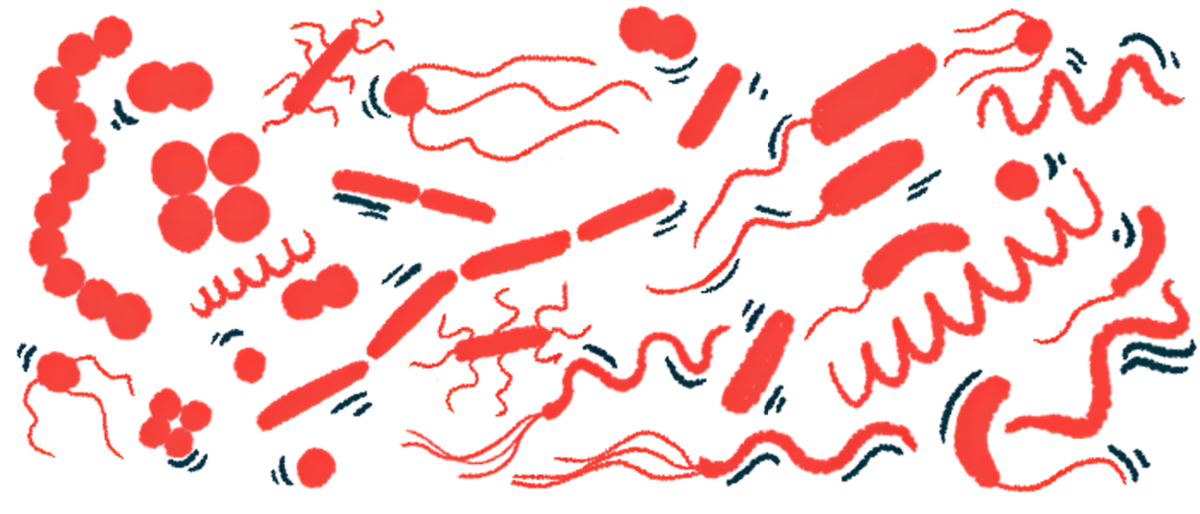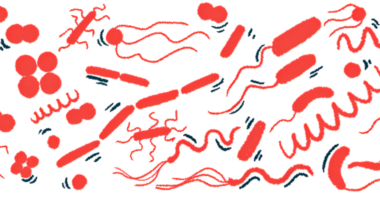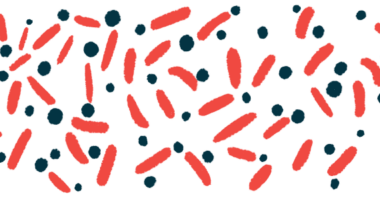Oral bacteria can colonize the gut, help drive Parkinson’s, study shows
Findings underscore 'critical role' of gut-brain axis in disease development

People with Parkinson’s disease have an increased abundance of the oral bacteria Streptococcus mutans — typically found in the mouth and associated with cavities in the teeth — in their gut, according to a new study involving patients and a mouse model.
Once established in the gut, these bacteria — called S. mutans for short — can produce metabolites, such as imidazole propionate, that travel to the brain and cause the loss of dopaminergic neurons. The loss of such neurons, or nerve cells, drives Parkinson’s development.
These findings, the researchers say, further underscore the importance of the so-called gut-brain axis in the development of Parkinson’s. The research results also identify potential new therapeutic targets for Parkinson’s that are keyed to gut bacteria, per the team.
The study, “Gut microbial production of imidazole propionate drives Parkinson’s pathologies,” was published in the journal Nature Communications. The international team of researchers was jointly led by Yunjong Lee, PhD, of Sungkyunkwan University School of Medicine, and Ara Koh, PhD, of Pohang University of Science and Technology in the Republic of Korea, along with two doctoral candidates, one from each university.
“Our study provides a mechanistic understanding of how oral microbes in the gut can influence the brain and contribute to the development of Parkinson’s,” Koh said in a university press release detailing the study findings.
“It highlights the potential of targeting the gut microbiota as a therapeutic strategy, offering a new direction for Parkinson’s treatment,” Koh added.
There is growing evidence that the gut microbiome — the billions of bacteria, viruses, and other microbes that live in the gut — plays a role in how Parkinson’s develops. For example, the gut microbiota is altered in people with Parkinson’s, and toxic clumps of the alpha-synuclein protein, a disease hallmark, seem to originate in the gut and then spread to the brain.
“However, the specific microbes that contribute to the key pathological [disease-causing] features of PD [Parkinson’s disease] have not been identified yet,” the researchers wrote.
Scientists ID Streptococcus mutans as key oral bacteria in Parkinson’s
A recent study of fecal samples from people with and without Parkinson’s helped provide a comprehensive understanding of the microbes that are abnormally low or high in people with Parkinson’s.
Now, the research team confirmed that data, and found that S. mutans — bacteria normally seen in a person’s mouth and linked to dental caries, or cavities — has one of the highest associations with Parkinson’s.
S. mutans produces an enzyme called urocanate reductase (UrdA), which takes part in a reaction that produces a chemical called imidazole propionate (ImP). ImP has started to receive considerable attention as a therapeutic target in various diseases.
In this study, the researchers examined genetic data from 491 people with Parkinson’s and 234 healthy elderly individuals, who served as controls. The team found that UrdA was significantly higher in the Parkinson’s patients. Compared with controls, patients also had higher levels of ImP in the blood, the data showed.
In mice, S. mutans found to establish itself in the gut, and thrive
To specifically investigate whether S. mutans could contribute to Parkinson’s, the researchers introduced the bacteria into the gut of germ-free mice. Despite being typically an oral bacteria, S. mutans successfully established itself in the gut, especially in the lower gut — and thrived in it, the researchers noted.
Further, these mice showed selective loss of dopaminergic neurons in the brain. These nerve cells produce a chemical messenger called dopamine and are progressively lost in Parkinson’s.
The bacteria also caused inflammation in the brain and abnormalities in star-shaped support cells called astrocytes. Levels of ImP increased both in the blood and the brain of mice only when S. mutans were present, suggesting that ImP produced in the gut can travel through the bloodstream to the brain.
Our findings underscore the critical role of the gut-derived microbial imidazole propionate as a key mediator in [Parkinson’s disease mechanisms] and indicated potential therapeutic options targeting the gut-brain axis.
To confirm the role of UrdA, the researchers modified Escherichia coli — a common bacteria that usually inhabit the gut — to produce the enzyme. Mice carrying these E. coli in the gut developed a similar loss of dopaminergic neurons, brain inflammation, and motor symptoms, suggesting that UrdA alone is sufficient to cause these effects.
The team also found that S. mutans, through its UrdA-redived production of ImP, activated a complex of signaling proteins called mTORC1, which senses the presence of misfolded proteins that tend to form toxic clumps. Blocking mTORC1 reduced inflammation and damage to neurons in the brain, while easing motor symptoms, according to the researchers.
“Our findings underscore the critical role of the gut-derived microbial imidazole propionate as a key mediator in [Parkinson’s disease mechanisms] and indicated potential therapeutic options targeting the gut-brain axis,” the researchers concluded.
Still, the team noted that much of their findings come from a mouse model of the disease. As such, further study is needed.








